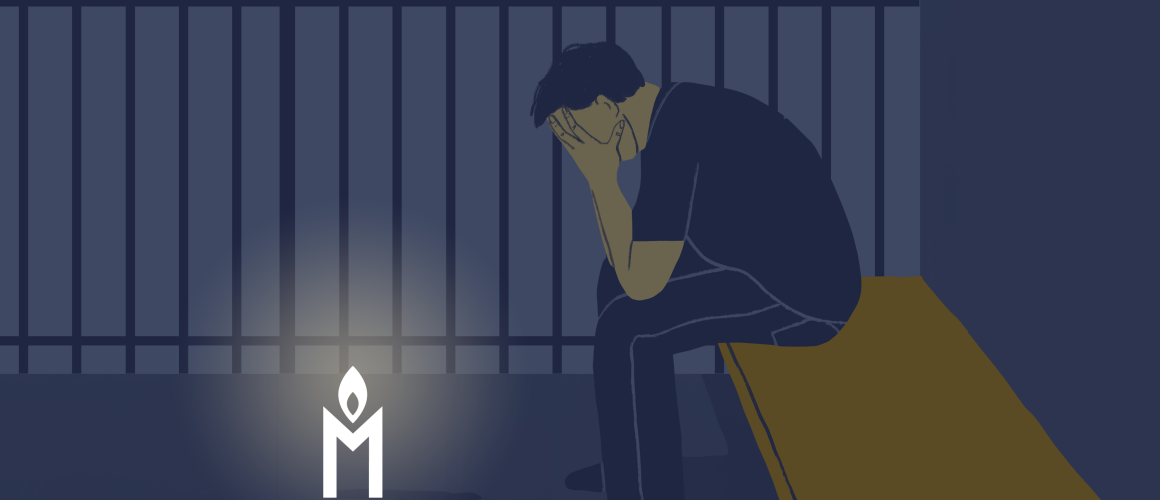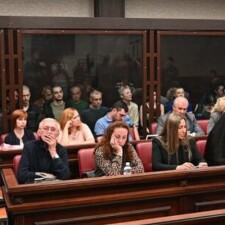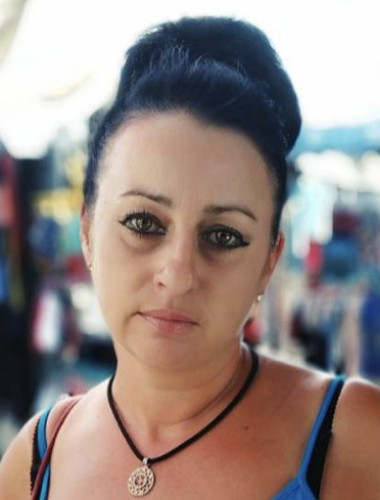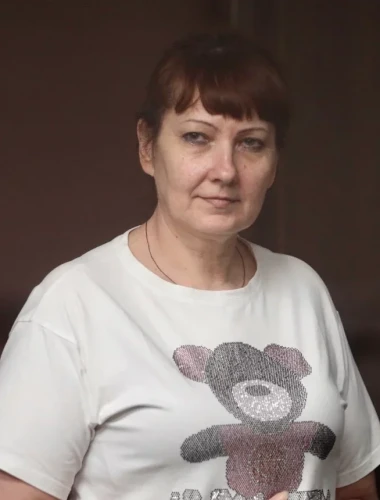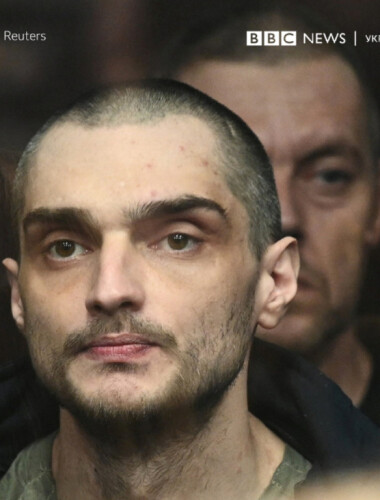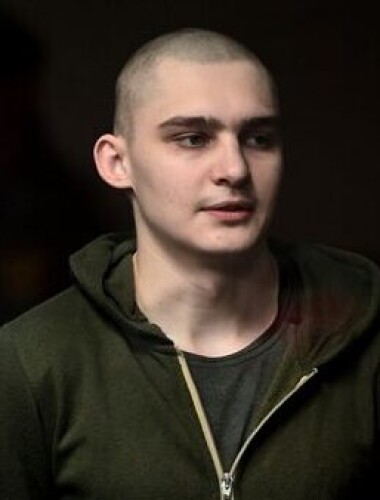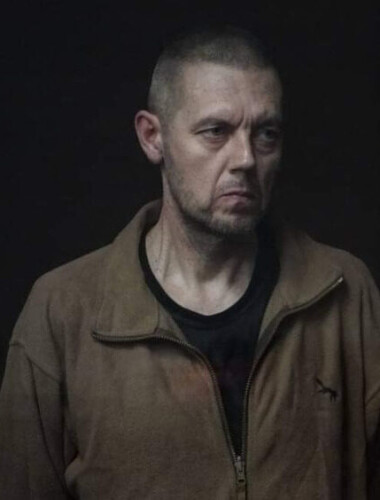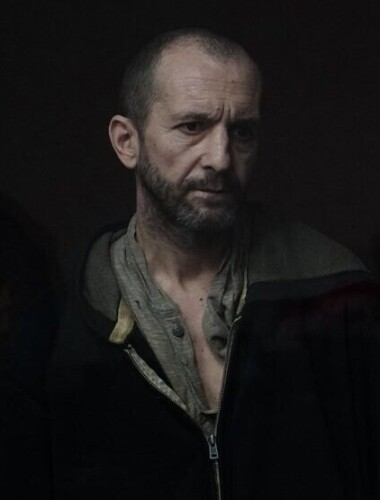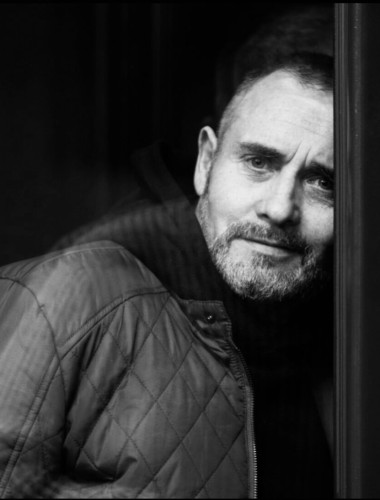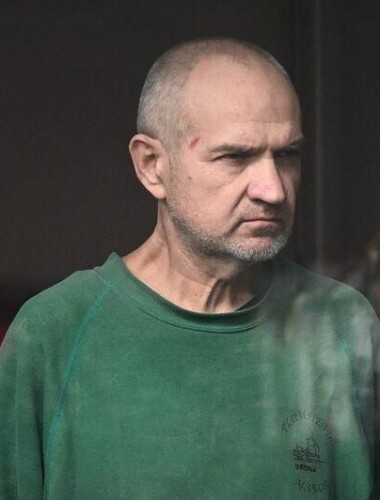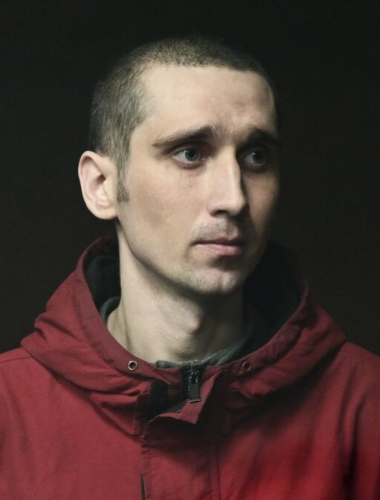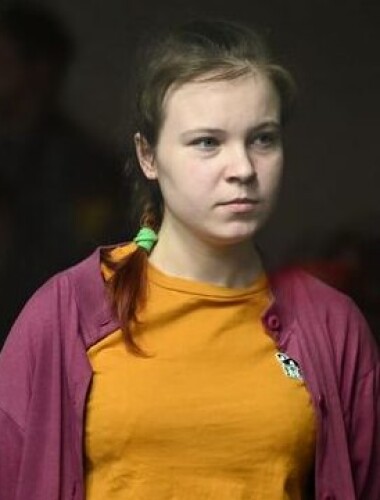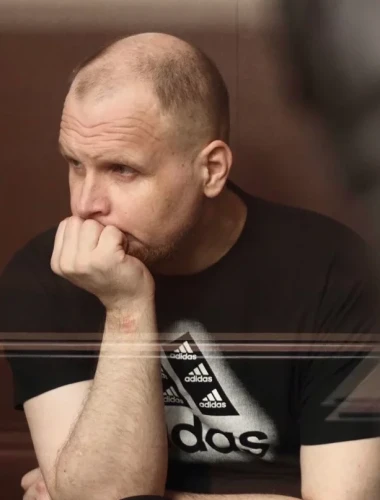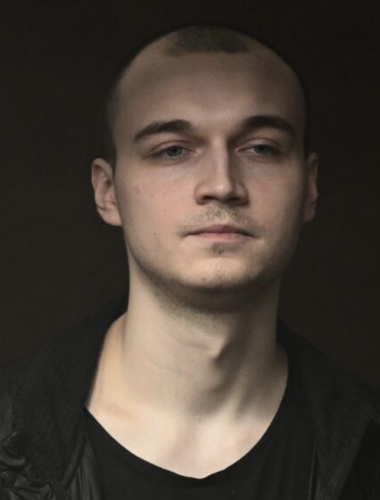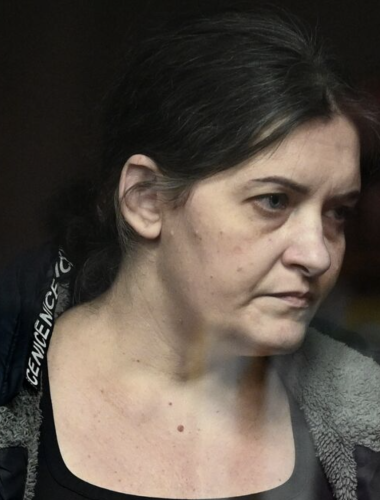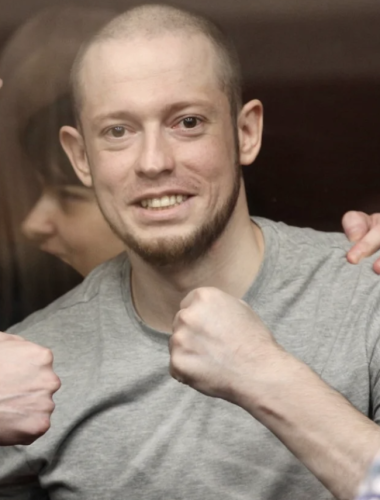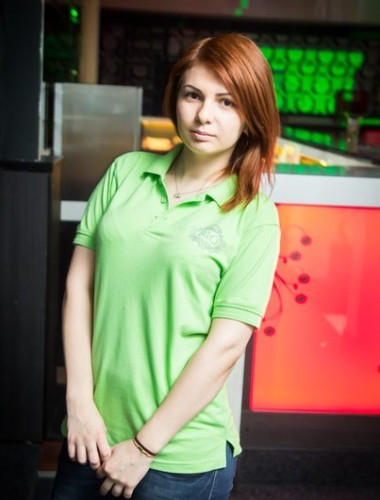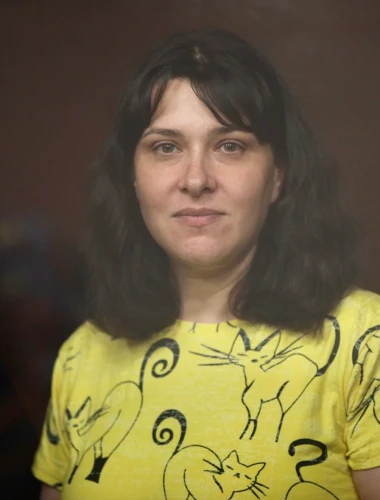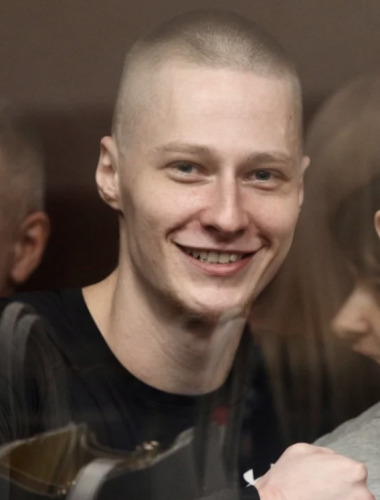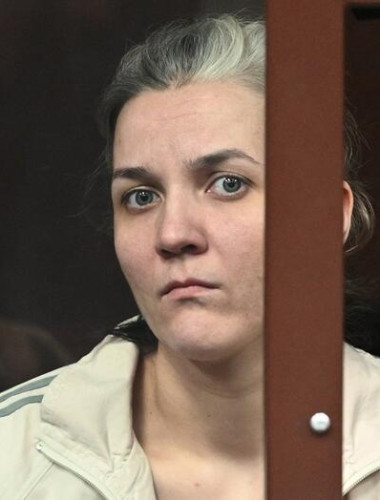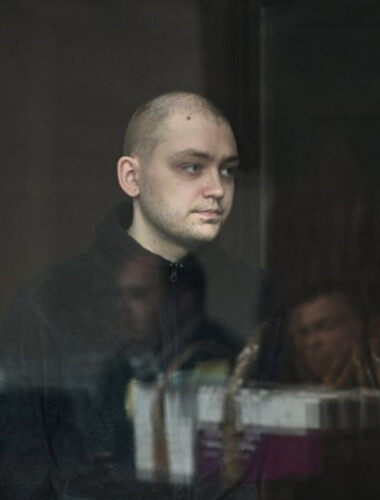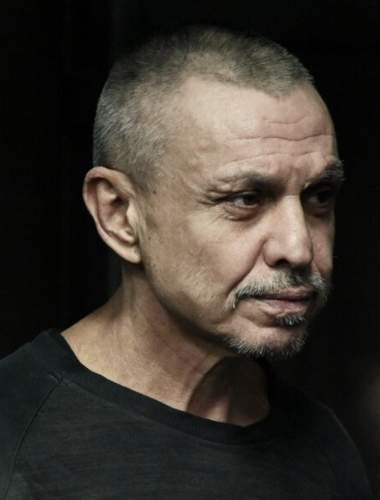Ukrainian Azov regiment POWs are political prisoners
24 Ukrainians are on trial on charges of terrorism
The ‘Political Prisoners. Memorial’ human rights project, in accordance with international standards, considers the Ukrainian Azov regiment PoW Olena Avramova, Nina Bondarenko, Alyona Bondarchuk, Natalia Holfiner, Artem Hrebeshkov, Artur Hretskyi, Anatolii Hrytsyk, Oleh Zharkov, Yaroslav Zhdamarov, Oleksandr Irkha, Oleksandr Ishchenko, Vladyslava Maiboroda, Oleksandr Merochenets, Iryna Mohitych, Oleh Mizhhorodskyi, Oleksandr Mukhin, Liliya Pavrianidis, Liliya Rudenko, Oleksii Smykov, Maryna Tekin, Mykyta Timonin, and Oleh Tyshkul are political prisoners, while Davyd Kasatkin and Dmitro Labinskyi are unlawfully prosecuted on political grounds. Some are prosecuted under articles on setting up activities of a terrorist organisation, participating in such activities, and aiming to forcibly seize power, whereas others are also prosecuted under the article on training for terrorist activities. The only reason for their prosecution is their service in the Azov regiment. This criminal case violates the rights to fair trial as well as the rights and freedoms guaranteed by the Geneva Convention Relative to the Treatment of Prisoners of War.
We demand the immediate release of everyone in custody and an end to the criminal prosecution of all those accused in this case.
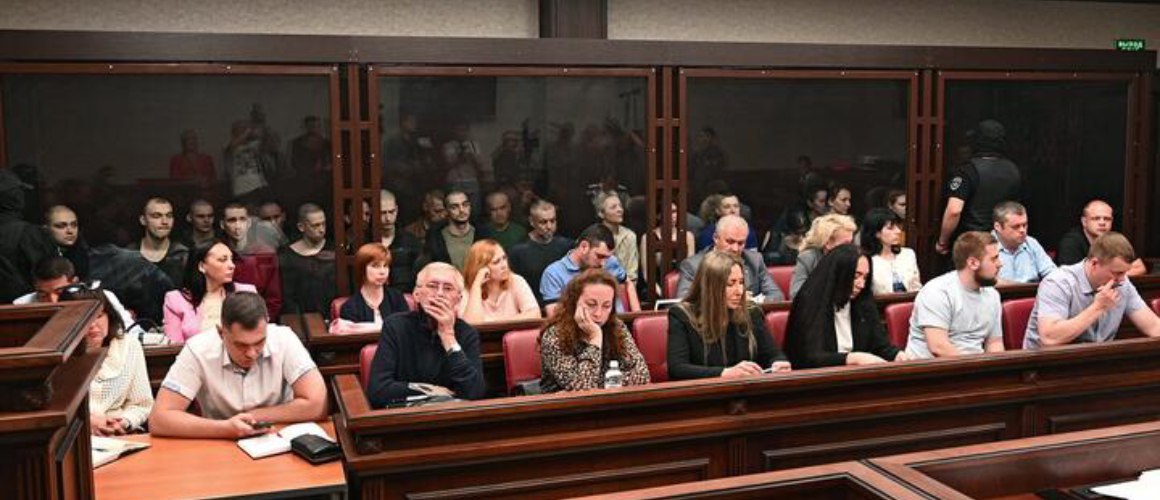
What is the case against PoWs from the Azov regiment?
None of the defendants in the case is charged with any war crimes: they are all being tried for the very fact of serving in the Ukrainian Azov regiment as the Russian Supreme Court declared it a terrorist organisation in 2022.
All the defendants in the case served in the Azov regiment at different moments as contract soldiers or civilian personnel. Some of them participated in the defence of Mariupol and Azovstal and then were taken prisoner, others left the service before Russia launched its full-scale invasion of Ukraine and were detained by Russian forces either at home or during filtration operations. Most of the defendants have been imprisoned since March — April 2022. The media referred to the trial as ‘the cooks’ case’, as most of the imprisoned women worked as cooks for the regiment.
13 defendants — Avramova, Bondarenko, Bondarchuk, Holfiner, Hrytsyk, Zharkov, Ishchenko, Maiboroda, Mohitych, Mizhhorodskyi, Pavrianidis, Rudenko, and Tekin — are being tried under articles on setting up the activities of a terrorist organisation and participating in them (Article 205.5 of the Russian Criminal Code) and taking action aimed at forcible seizure of power (Article 278 of the Russian Criminal Code). They are facing up to 20 years in prison on each of the charges.
Another 11 defendants — Hrebeshkov, Hretskyi, Zhdamarov, Irkha, Kasatkin, Labinskyi, Merochenets, Mukhin, Smykov, Timonin, and Tyshkul — are also accused of undergoing training to take part in the terrorist activities (Article 205.3 of the Russian Criminal Code). If convicted under these charges, they could face life imprisonment.
Kasatkin and Labinskyi are accused in absentia, as they returned to Ukraine during an exchange of prisoners of war. The other defendants are being held in a remand centre.
Since 19 July 2022, the trial has been underway in a military court in Rostov-on-Don.
Why do we consider them to be political prisoners?
We believe that the decision of the Russian Supreme Court to label the Azov regiment as a terrorist organisation, as well as the charges under ‘terrorist’ articles regarding involvement in this unit, is unlawful. Moreover, this ruling of the Russian Supreme Court was made only on 2 August 2022, after the detention of the defendants in the case.
The prosecution of the Azov regiment PoWs under the article on forcible seizure of power is illegitimate, as they are being tried for participation in military operations on the territory of the self-proclaimed Donetsk People’s Republic. The international community has reiterated the territorial integrity of Ukraine, therefore the actions of the Azov fighters aimed at restoring Ukraine’s constitutional order and repelling Russia’s military aggression are lawful. The violent seizure of power in the Donetsk region of Ukraine was carried out not by the Azov fighters but by the Donetsk People’s Republic with covert and later overt support of Russia.
The criminal persecution of prisoners of war contradicts international law — above all, the Geneva Convention Relative to the Treatment of Prisoners of War. From the standpoint of international law, Russia’s violation of the Geneva Convention regarding prisoners of war from the Azov regiment can be considered a war crime.
Further information about this case and the position of the ‘Political Prisoners. Memorial’ rights project is available on our website.
Recognition of an individual as a political prisoner does not imply the ‘Political Prisoners. Memorial’ human rights project agrees with or approves of their views, statements, or actions.
How can you help?
You can write a letter at the following address:
344022, г. Ростов-на-Дону, ул. М. Горького, д. 219, ФКУ СИЗО-1 ГУФСИН России по Ростовской области
Смыкову Алексею Владимировичу 1996 г.р.,
Мижгородскому Олегу Дмитриевичу 1979 г.р.,
Мухину Александру Александровичу 1993 г.р.,
Грицыку Анатолию Петровичу 1976 г.р.,
Ищенко Александру Александровичу 1969 г.р.,
Гольфинер Наталье Владимировне 1974 г.р.,
Руденко Лилии Муратовне 1984 г.р.,
Бондарчук Алёне Александровне 1981 г.р.,
Паврианидис Лилии Витальевне 1994 г.р.,
Аврамовой Елене Лазаревне 1973 г.р.,
Могитич Ирине Александровне 1981 г.р.,
Майбороде Владиславе Владимировне 2001 г.р.,
Текин Марине Олеговне 1990 г.р.,
Ирхе Александру Васильевичу 1979 г.р.,
Ждамарову Ярославу Владимировичу 1993 г.р.,
Жаркову Олегу Владимировичу 1971 г.р.,
Гребешкову Артёму Сергеевичу 1993 г.р.,
Грецкому Артуру Олеговичу 2002 г.р.,
Мероченецу Александру Александровичу 1999 г.р.,
Бондаренко Нине Игоревне 1984 г.р.,
Тышкулу Олегу Николаевичу 1969 г.р.,
Тимонину Никите Геннадьевичу 1995 г.р.
Электронные письма можно отправлять через сервис «Зонателеком».
In English:
Oleksii Volodymyrovych Smykov (born 1996),
Oleh Dmytrovych Mizhhorodskyi (born 1979),
Oleksandr Oleksandrovych Mukhin (born 1993),
Anatolii Petrovych Hrytsyk (born 1976),
Oleksandr Oleksandrovych Ishchenko (born 1969),
Natalia Volodymyrivna Holfiner (born 1974),
Liliya Murativna Rudenko (born 1984),
Alyona Oleksandrivna Bondarchuk (born 1981),
Liliya Vitalivna Pavrianidis (born 1994),
Olena Lazarivna Avramova (born 1973),
Iryna Oleksandrivna Mohitych (born 1981),
Vladyslava Volodymyrivna Maiboroda (born 2001),
Maryna Olehivna Tekin (born 1990),
Oleksandr Vasylyovych Irkha (born 1979),
Yaroslav Volodymyrovych Zhdamarov (born 1993),
Oleh Volodymyrovych Zharkov (born 1971),
Artem Serhiyovych Hrebeshkov (born 1993),
Artur Olehovych Hretskyi (born 2002),
Oleksandr Oleksandrovych Merochenets (born 1999),
Nina Igorivna Bondarenko (born 1984),
Oleh Mykolayovych Tyshkul (born 1969),
Mykyta Hennadyovych Timonin (born 1995),
Remand Prison No. 1, Russian Federal Penitentiary Service for Rostov region, 219 Gorkogo Street, Rostov-on-Don 344022
You can also send an electronic letter via Zonatelecom if you use Russian bank services and via PrisonMail if you use other banks.
Please note that letters in languages other than Russian are highly unlikely to reach the recipient.
You can donate to support all political prisoners to support all political prisoners in Russia.
